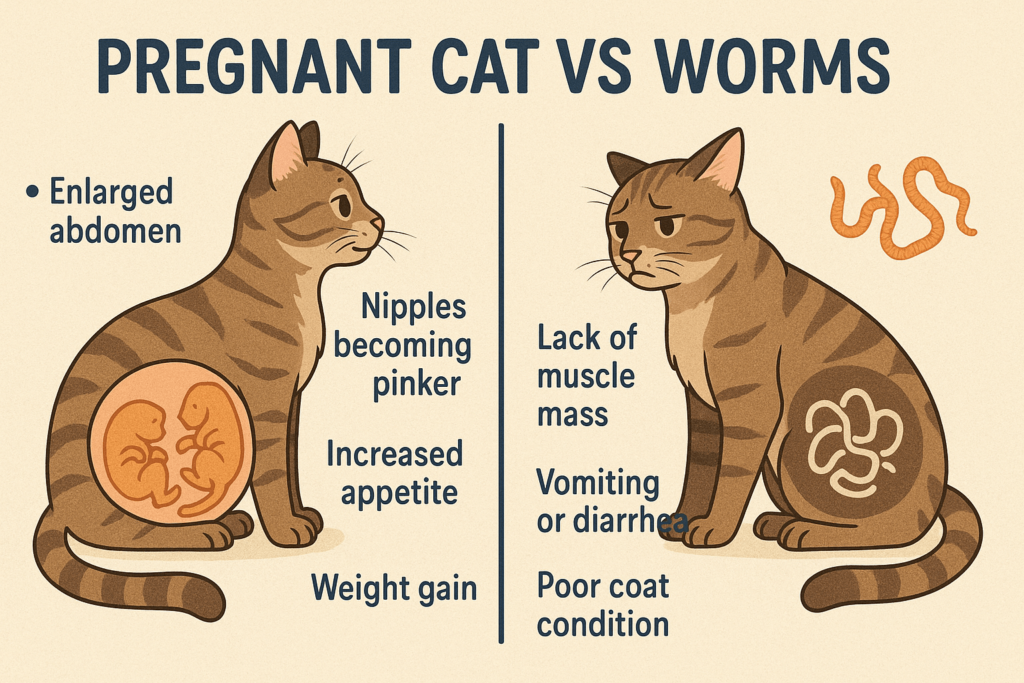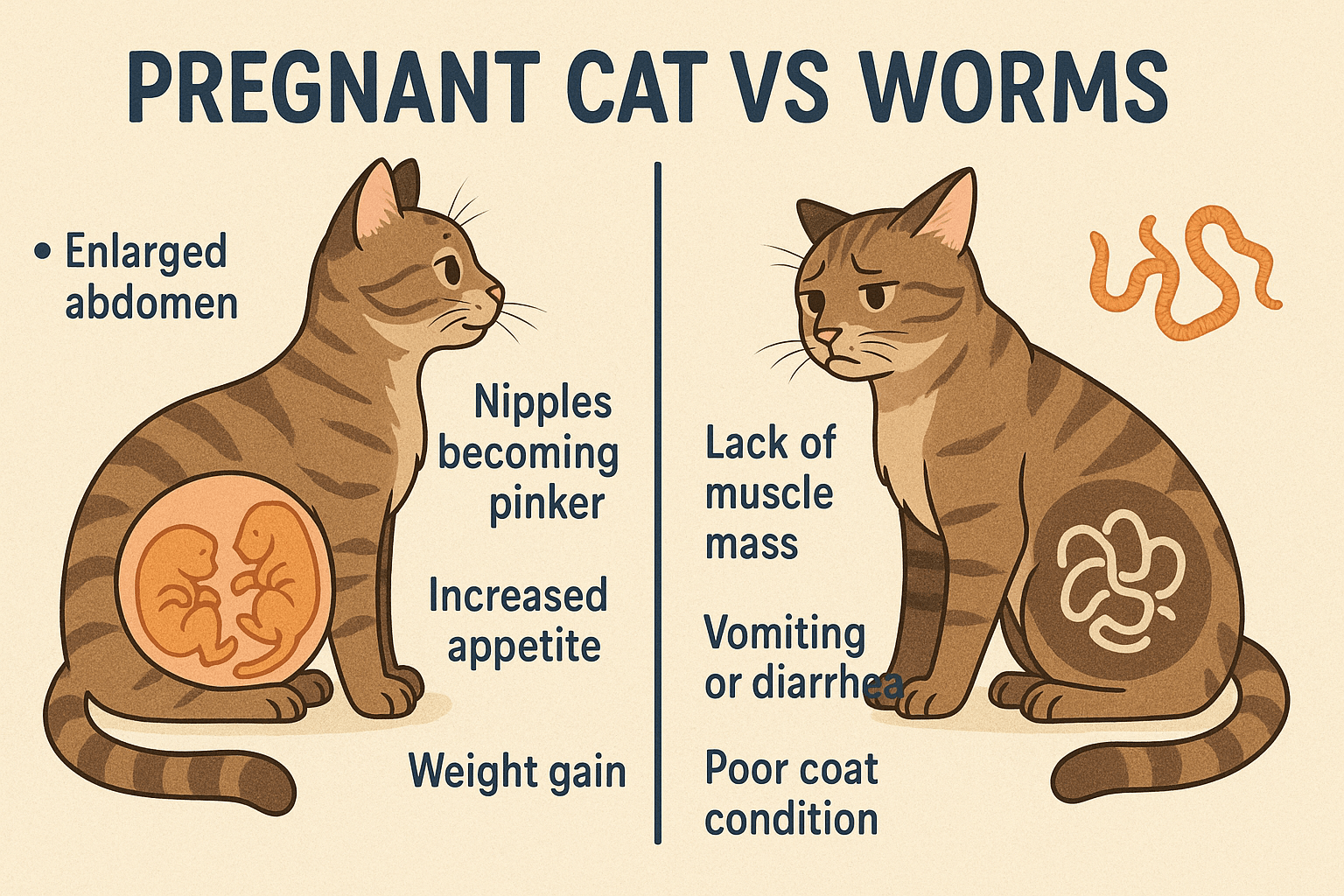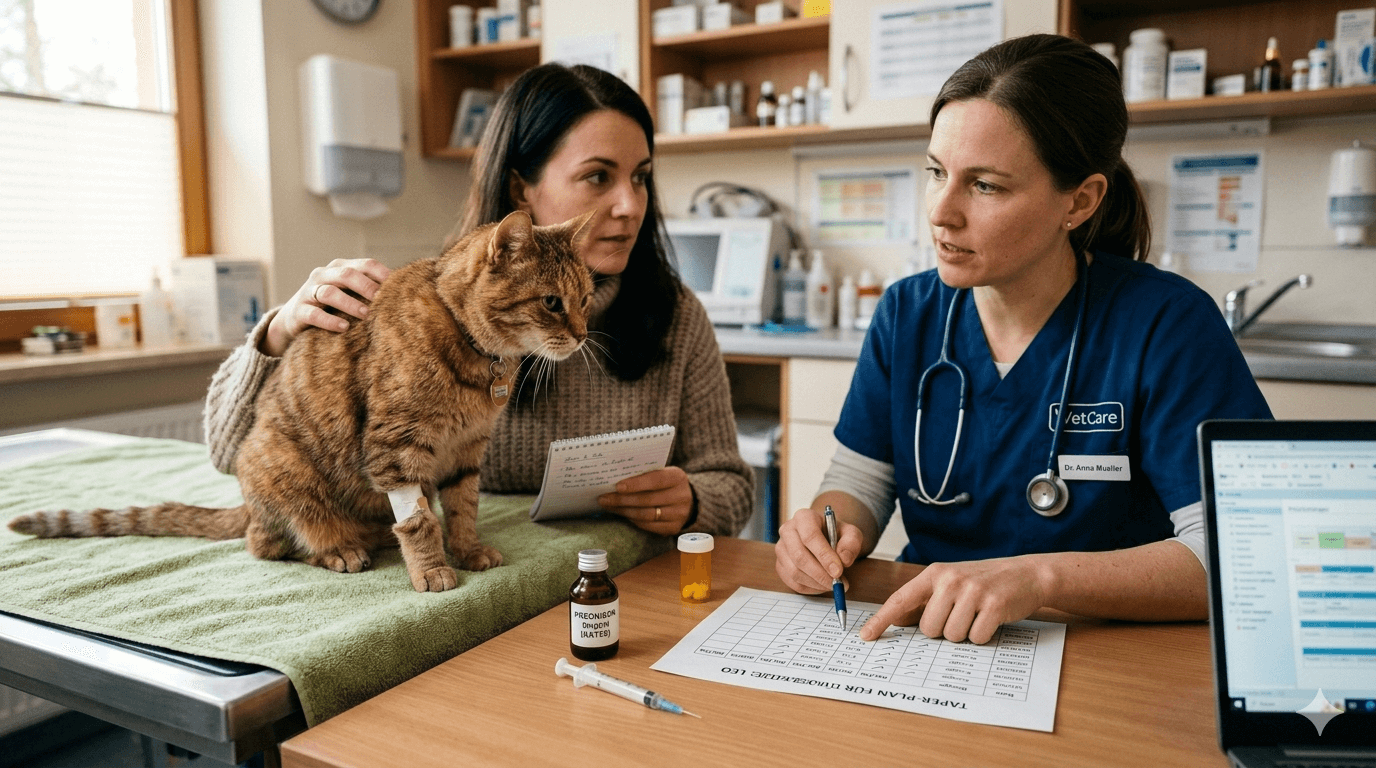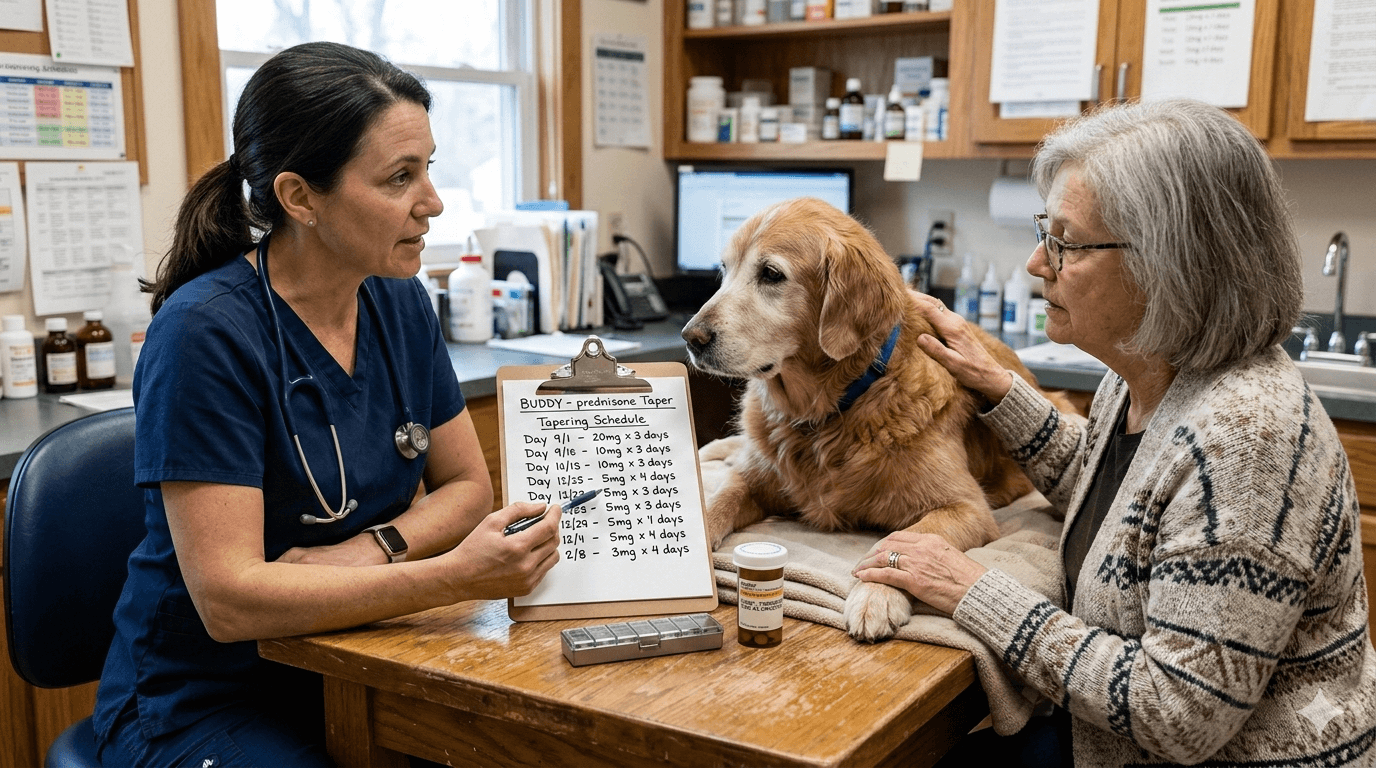Pregnant Cat vs Worms: Protecting Your Feline and Her Kittens
Welcoming a pregnant cat into your home is an exciting yet delicate responsibility. Ensuring her health during pregnancy is crucial, not only for her well-being but also for the safety of her unborn kittens. One common concern that arises is the presence of worms—internal parasites that can pose serious risks to both the mother and her litter. But how do you address this issue safely? Can you deworm a pregnant cat without harming her or her kittens? This blog post will guide you through understanding, preventing, and treating worms in pregnant cats while prioritizing their unique needs. Let’s explore how to keep your feline family healthy and thriving.
Expert Insight on Pregnancy and Worms in Cats
“One of the most obvious signs of pregnancy in a cat is the presence of nipples that become more prominent and pink as the pregnancy progresses. The cat may also exhibit nesting behavior, where she seeks out a quiet and secluded spot to give birth. In contrast, a cat with worms may show signs of discomfort, such as vomiting or diarrhea, and may also have a bloated abdomen due to the presence of the parasites.”
— Dr. Jess
Understanding Worms in Pregnant Cats
Worms are a common problem in cats, and pregnancy doesn’t make them immune. Understanding the types of worms and their effects on pregnant cats is the first step toward effective management.
Roundworms:
These spaghetti-like parasites often infect cats and can pass to kittens through the mother’s milk.Tapeworms:
Tapeworms are usually contracted from fleas and can cause digestive discomfort in pregnant cats.Hookworms:
Hookworms attach to the intestinal lining, causing blood loss and potentially leading to anemia—a serious concern for pregnant cats.Whipworms:
Though less common, whipworms can irritate the intestines and lead to dehydration or nutrient deficiencies.Heartworms:
While rare in cats, heartworms can be life-threatening if transmitted through mosquito bites.
Recognizing these parasites and their symptoms helps you take timely action to protect your pregnant cat and her developing kittens.

Signs Your Pregnant Cat May Have Worms
Detecting worms early is essential for minimizing harm to your pregnant cat and her unborn kittens. Watch for these telltale signs that may indicate a parasitic infection.
Visible Worms in Stool or Vomit:
Some worms, like roundworms or tapeworm segments, may appear in your cat’s feces or vomit.Diarrhea or Constipation:
Gastrointestinal issues can arise from worm infestations, causing irregular bowel movements.Weight Loss Despite Normal Appetite:
A pregnant cat losing weight despite eating normally may be struggling with internal parasites.Bloated Abdomen:
A swollen belly unrelated to pregnancy could indicate a heavy worm burden.Lethargy or Weakness:
Fatigue and lack of energy are common symptoms of worms draining your cat’s nutrients.
By recognizing these signs, you can seek veterinary care promptly and prevent complications during pregnancy.
Check this guide 👉Understanding Cat Pregnancy Tests: Best 7 Expert Tips!
Check this guide 👉Natural Dewormer for Cats: Best 7 Expert Tips!
Check this guide 👉How Do Cats Lay When Pregnant? Best 7 Expert Tips!
Preventive Measures for Worms | Treatment Options During Pregnancy |
|---|---|
Regular vet check-ups before breeding | Deworming medications approved for pregnant cats |
Flea control to prevent tapeworms | Administering treatment under vet supervision |
Keeping litter boxes clean | Avoiding over-the-counter dewormers |
Feeding cooked or commercial food | Monitoring side effects after treatment |
Limiting outdoor exposure | Isolating infected cats temporarily |
Safe Deworming Practices for Pregnant Cats
Deworming a pregnant cat requires special care to avoid harming her or her unborn kittens. Follow these guidelines to ensure safe and effective treatment.
Consult Your Veterinarian First:
Always seek professional advice before administering any medication to a pregnant cat.Use Vet-Approved Medications:
Certain dewormers are formulated specifically for use during pregnancy; never use off-label products.Time Treatment Carefully:
Deworming should ideally occur early in pregnancy to minimize risks to the developing kittens.Monitor for Side Effects:
Keep an eye on your cat for adverse reactions such as vomiting, diarrhea, or lethargy after treatment.Maintain Hygiene Post-Treatment:
Clean litter boxes frequently and wash bedding to prevent reinfestation after deworming.
Following these practices ensures your pregnant cat receives safe and effective parasite control.
How Worms Affect Kittens After Birth
Even if a pregnant cat appears healthy, worms can still impact her kittens after birth. Understanding these risks underscores the importance of proactive deworming.
Transmission Through Milk:
Many worms, like roundworms, can pass to kittens through nursing, leading to stunted growth or illness.Weakened Immune Systems:
Kittens are more vulnerable to infections due to their immature immune systems, making worm infestations particularly dangerous.Gastrointestinal Issues:
Worms can cause diarrhea, vomiting, and poor nutrient absorption in young kittens.Delayed Development:
Parasites compete for nutrients, leaving kittens malnourished and underweight.Potential Fatal Outcomes:
Severe infestations can result in life-threatening conditions like anemia or intestinal blockages.
Preventing worms in the mother reduces the risk of transmission and ensures healthier outcomes for her kittens.
Preventing Worm Infestations
Prevention is key to protecting your pregnant cat from worms. Taking proactive measures reduces the likelihood of infestations and promotes overall health.
Keep Litter Boxes Clean:
Remove feces daily to prevent contamination and reinfection.Control Fleas Effectively:
Use vet-approved flea treatments to eliminate carriers of tapeworm eggs.Provide Cooked or Commercial Food:
Avoid feeding raw meat, which can harbor parasites, and stick to high-quality commercial diets.Limit Outdoor Access:
Restrict outdoor time to reduce exposure to contaminated environments or prey animals.Schedule Regular Check-Ups:
Routine vet visits help detect and address potential issues early.
With these preventive steps, you can significantly lower the risk of worms affecting your pregnant cat.
Natural Remedies for Supporting Digestive Health
While medical treatment is essential, natural remedies can complement your efforts to support your pregnant cat’s digestive health.
Pumpkin Seeds:
Ground pumpkin seeds act as a mild deworming agent by paralyzing parasites in the gut.Chamomile Tea (Diluted):
Chamomile has calming properties that may soothe digestive upset caused by worms.Probiotics:
Adding probiotics to your cat’s diet supports gut flora and boosts immunity against parasites.Fresh Parsley:
Parsley acts as a natural detoxifier and aids in cleansing the digestive system.Apple Cider Vinegar (Diluted):
A small amount mixed into water discourages parasites and promotes overall wellness.
These natural solutions should supplement—not replace—professional veterinary care.
Creating a Stress-Free Environment for Your Pregnant Cat
A stress-free environment plays a vital role in helping your pregnant cat stay healthy and worm-free. Reducing stress strengthens her immune system and minimizes vulnerability to parasites.
Provide a Quiet Space:
Designate a calm area where she can rest away from noise and disturbances.Offer Comfortable Bedding:
Soft, clean bedding provides a cozy spot for resting and nesting.Maintain a Consistent Routine:
Stick to regular feeding, cleaning, and play schedules to create stability.Minimize Contact with Other Animals:
Limit interactions with unfamiliar pets to reduce exposure to parasites.Encourage Gentle Play:
Engage in low-impact activities that keep her active without causing strain.
By fostering a peaceful environment, you empower your pregnant cat to thrive throughout her journey.
Frequently Asked Questions About Worms in Pregnant Cats
Can worms harm my pregnant cat?
Yes, worms can cause anemia, nutrient deficiencies, and other health issues that may affect her pregnancy.
Are over-the-counter dewormers safe for pregnant cats?
No, many over-the-counter products are unsafe for pregnant cats. Always consult a vet for appropriate treatments.
How often should I deworm my pregnant cat?
Timing depends on the type of worm and the cat’s health; your vet will provide a tailored schedule.
Can worms pass to humans?
Some worms, like roundworms, can transmit to humans, especially children, through contaminated soil or feces.
What happens if I don’t treat worms during pregnancy?
Untreated worms can harm both the mother and her kittens, potentially leading to severe complications.
Prioritizing Health for Mother and Kittens
Managing worms in a pregnant cat requires vigilance, compassion, and expert guidance. By understanding the risks, recognizing symptoms, and following safe deworming practices, you can safeguard the health of your feline family. Remember, prevention is always better than cure—regular veterinary care and good hygiene go a long way in keeping worms at bay. With the right approach, you can ensure a smooth pregnancy and a happy, healthy start for your cat’s new litter.
How to Taper Off Prednisone for Cats: Best 7 Expert Tips! – Safely reduce prednisone with vet guidance. Learn now!
How to Taper Off Prednisone Schedule for Dogs: Best 7 Tips! – Learn the safe way to reduce prednisone, recognize withdrawal signs, and keep your dog healthy during the process.
Can a Cat Scratch Give You Rabies? Best 7 Expert Tips! – Learn how rabies spreads, assess risks from cat scratches, and know when to seek medical help. Stay safe!
Can a Dog Scratch Give You Rabies? Best 7 Expert Tips! – Learn the risks, symptoms, and steps to take if scratched by a dog. Stay informed and protect yourself from rabies exposure.





